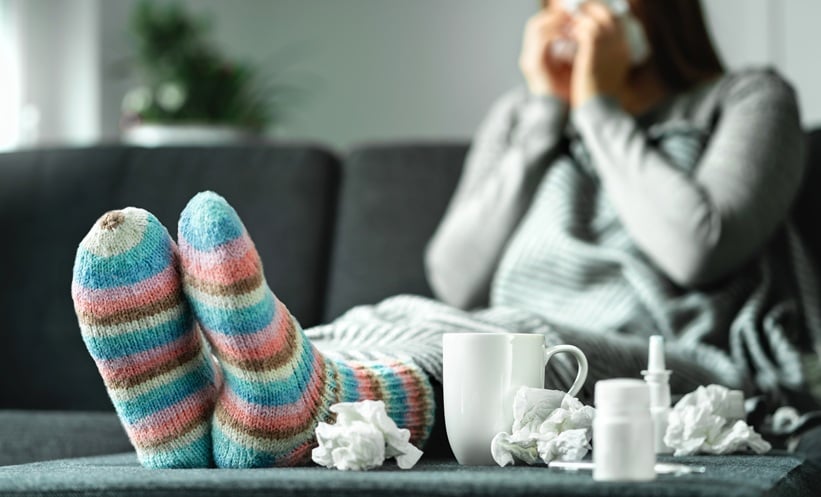THE LATEST UK Health Security Agency (UKHSA) winter surveillance report shows flu activity continuing to climb unusually early in the season, despite a temporary slowdown during school half-term.
Flu Trends Stabilise but Remain Above Seasonal Norms
The UKHSA’s winter surveillance bulletin highlights mixed flu trends as reduced mixing over the school break briefly steadied several indicators. However, overall activity remains higher than expected for early November, driven by a drifted H3N2 strain that has triggered an early start to the season. Flu positivity in hospitals rose to 11.9% during 3–9 November, and primary care positivity reached 16%. Although hospitalisation rates remained stable, UKHSA warns that further increases are likely as indoor mixing rises toward winter festivities. Early analysis confirms that this year’s vaccine continues to offer strong protection, prompting renewed calls for eligible groups to get vaccinated without delay.
COVID-19 and RSV Remain Low but Show Shifts
UKHSA winter surveillance also reports that COVID-19 activity has declined to baseline levels. Hospital positivity dropped to 5%, and hospitalisations fell to 1.72 per 100,000. Rates remained highest among adults aged over 85 years, though admissions decreased week on week. In contrast, respiratory syncytial virus shows signs of increasing activity, despite remaining at baseline levels. Emergency department attendances for bronchiolitis have risen, alongside an increase in weekly RSV hospital admissions to 1.41 per 100,000, consistent with a later-than-usual start to the RSV season.
Norovirus Stable but Still Impacting Young Children
Norovirus levels remain broadly within expected seasonal ranges. Reports from late October to early November were comparable to the five-season average, though 5.5% lower than the previous fortnight. Children aged 0 to 4 years continue to experience the highest rates, and UKHSA emphasises the importance of staying home for 48 hours after symptoms stop. Rotavirus activity also aligns with typical seasonal patterns, and early genotyping confirms that norovirus genogroup 2 remains dominant this season.
Reference
UK Health Security Agency (UKHSA). UKHSA weekly winter surveillance bulletin. 2025. Available at: https://www.gov.uk/government/news/ukhsa-weekly-winter-surveillance-bulletin. Last accessed: 19 November 2025.








